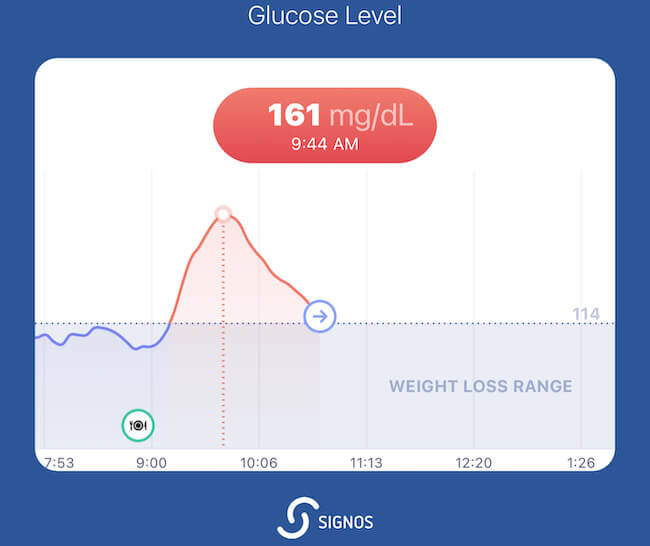Carbohydrates are often labeled unhealthy, and the amount one should eat for optimal health is debated. The Dietary Guidelines for Americans recommend that adults consume between 45 and 65% of their calories from carbohydrate sources.1
Foods containing carbohydrates provide the body with glucose. Glucose is needed for body functions and physical activity. The brain, kidney marrow, reproductive tissues, and red blood cells require 170 grams (680 calories) daily to function optimally.2 This is one-third of a 2,000-calorie diet.
The important factor for carbohydrate consumption is prioritizing complex carbohydrate foods. Beneficial foods that contain carbohydrates include fruit, vegetables, beans, lentils, milk and dairy products, oats, whole grains, and brown rice.
Consuming large amounts of carbohydrates from refined sources is associated with an increased risk for type 2 diabetes.2, 3 People consuming more whole carbohydrates have a lower risk of heart disease, type 2 diabetes, and some cancers.2, 4
Refined carbohydrates include white bread, baked goods, pasta, sweets, desserts, juice, sweetened cereal, chips, and snack foods.
In this article, we will compare whole and refined carbohydrates, different examples of each, and discuss the benefits and risks of their intake.
{{mid-cta}}
What are Carbs?
Carbohydrates (or carbs) contain carbon, hydrogen, and oxygen molecules arranged in various ways. The human body breaks down carbohydrates for energy. Carbs, protein, and fat provide energy and are called macronutrients.
Carbohydrates are divided into categories based on their structure - simple or complex. Simple carbohydrates are made of one or two sugar units. Complex carbs are made of many sugar units in long chains.2
Three types of dietary carbohydrates exist: sugars, starches, and fiber. Sugars are simple carbohydrates, whereas starches and fiber are complex carbohydrates.2
1. Sugars
Sugars are one-unit carbohydrates (monosaccharides) or two-units (disaccharides). They are digested faster than other carbohydrates and give sweetness to various foods.
Some examples of sugar are glucose, fructose, galactose, sucrose, and lactose. Lactose provides a sweet flavor found in milk products. Fructose and sucrose sweeten beverages like soda, sweet tea, and fruit juice.2
2. Starches
Starches are long chains of sugar units (polysaccharides) that take longer to digest (or break down) into a single-unit sugar called glucose. They are not sweet.
Some examples are amylose and glycogen found in whole grains, potatoes, corn, and fruit.
3. Fiber
Fiber is another long chain of sugar units (polysaccharides). The key difference is that the human body cannot digest fiber.
Fiber is found in whole grains, oats, beans, nuts, seeds, fruits, and vegetables. However, bacteria in the digestive tract can digest some types of fiber and provide food to support healthy gut bacteria. The undigested fiber adds bulk to stool, preventing constipation. Fiber slows down digestion, leading to slow-rising blood sugar levels.5
Consuming a diet high in complex or whole carbohydrates ensures you eat slowly digested starches and indigestible fiber. A mixture of whole and refined carbohydrates ensures a variety of foods, a fuel source for your brain and body, and health benefits from different fiber types.
Ideally, consuming 25 to 35 grams of fiber is best for health, as the Dietary Guidelines for Americans recommends.1 Most people only eat about 15 grams daily.5
Limiting added sugars is a helpful way to balance your refined carbohydrate intake.
The Dietary Guidelines for Americans recommend limiting added sugars to less than 10% of daily calories (about 50 grams or 200 calories).1 The American Heart Association recommends a lower daily limit of 25 grams or 100 calories for women and 36 grams or 150 calories for men.6
Consider limiting added sugar or reducing your intake to optimize your health. Consuming fiber at the recommended guideline prevents overconsuming refined carbs. Adding beneficial foods is sometimes easier to start with than limiting certain foods.
<p class="pro-tip"><strong>Also Read: </strong><a href="fast-digesting-carbs">Fast-Digesting Carbs: What They Are and How They Work</a>.</p>
Whole vs. Refined Carbs

As you can see, several terms describe carbohydrates. It can be confusing to distinguish between the terms and which types of carbs are recommended.
Whole carbohydrates are complex carbohydrates and contain fiber. Whole carbs are not processed extensively like refined carbs. Refined grains maintain more of the grain kernel, which contains fiber, vitamins, protein, phytochemicals, and some minerals.7
A refined carbohydrate from a grain source has been processed (milled), and most of the original nutrients in the kernel are removed. Refined grains have 25% of their protein removed and 50 to 55% of other vitamins, minerals, and fiber removed during processing.7
Refined grains are required by law to add some vitamins and minerals, but fiber is not.7
Whole carbohydrates include:
- Vegetables
- Fruits
- Legumes like beans or lentils
- Oats
- Whole grains like buckwheat, quinoa, barley, and whole wheat bread
- Brown rice
- Potatoes
Refined carbohydrates include:
- White bread
- Baked goods like desserts, pastries, donuts, and bagels
- White flour pasta
- Sweetened breakfast cereals
- Sugar-sweetened beverages like soda, sweet tea, and juice
- Snack foods like potato chips, chips, and pretzels
Prioritize whole carbohydrates to prevent and manage health conditions like heart disease and type 2 diabetes.
Why Should You Limit Refined Carbs?
Refined carbohydrates, like cereal and sugar-containing food and beverages, are highly associated with nutrition-related chronic diseases like type 2 diabetes, metabolic syndrome, and heart disease.2
Less conclusive research links refined carbs to other health conditions like cancer, kidney disease, mental health, allergies, and asthma. But these conditions might be affected negatively by high refined carb intake.2
People consuming more whole grains have a lower risk for heart disease, type 2 diabetes, metabolic syndrome, and cancer, better gut health and regularity, lower body mass index, and more stable long-term weight.2, 3, 4, 8, 9
Reduced Type 2 Diabetes Risk
A 2013 observational study among 72,215 post-menopausal women showed an increased risk of type 2 diabetes when consuming refined grains and steady weight gain over time.3
The authors calculated a 43% reduction in diabetes incidence when consuming at least two servings of whole grains daily compared to women consuming no whole grains.3
Refined carbohydrates lead to quick blood sugar spikes, subsequent hunger, and snacking. They are also low in fiber, vitamins, and minerals.
Lower Heart Disease Risk
Diets high in whole carbohydrates lower lipid levels and reduce the risk of CVD.
A meta-analysis including 45 studies found a 20% reduced risk of cardiovascular disease, stroke, and coronary heart disease in participants consuming 90 grams or three servings of whole grains daily.10
A narrative study found that lipid profiles worsened when participants replaced saturated fats with sugar (a refined carbohydrate). Their cholesterol levels increased, HDL cholesterol levels dropped, and triglyceride levels rose.11 Saturated fats are meant to be limited to less than 10% of daily calories per the Dietary Guidelines for Americans.1
Interestingly, this narrative study found refined carbohydrates were more damaging to lipid profiles than saturated fats.
Improved Gut Health
The fiber in whole carbohydrates provides beneficial features for your gut and, ultimately, the whole body.
Gut bacteria and the gastrointestinal tract work together to protect against illness and boost immunity, and the bacteria digest some types of fiber, providing energy to the body.2
Higher fiber diets provide food for beneficial gut bacteria that correlates with lower obesity rates and better insulin response. On the other hand, a diet high in refined carbs reduces immunity and increases inflammation.2
Overeating refined carbohydrates fuels unwelcome gut bacteria, sometimes causing an overgrowth. Processed foods and beverages contain an abundance of refined carbs like sugar and fructose. Sugar-sweetened beverages contain all refined carbs like sucrose, glucose, and high fructose corn syrup.2
Choosing whole carbohydrates ensures your diet has more fiber, vitamins, and minerals. This helps you stay full longer and have more energy. Whole carbs offer many health benefits like improved gut bacteria and healthier body weight, promotion of weight loss, and prevention of type 2 diabetes and heart disease.
Learn More About Healthy Nutrition With Signos’ Expert Advice
A Signos continuous glucose monitor (CGM) can help you track blood glucose levels discretely and conveniently.
This tool (CGM) can help you understand how your body reacts to different whole and refined carbohydrates to help you make effective changes.
A Signos’ CGM can help you improve your health while trying to prevent or manage type 2 diabetes and other health conditions.
Learn more about nutrition and healthy habits on Signos’ blog. Take a quick quiz to determine if Signos fits your needs.
<p class="pro-tip"><strong>Learn More: </strong><a href="are-carbs-bad-for-you">Are Carbs Bad for You? Everything You Need to Know for a Healthy Diet</a>.</p>
- Item 1
- Item 2
- item 3
Topics discussed in this article:
References
- U.S. Department of Agriculture and U.S. Department of Health and Human Services. (2020, December). Dietary Guidelines for Americans, 2020-2025. 9th edition. https://www.dietaryguidelines.gov/sites/default/files/2020-12/Dietary_Guidelines_for_Americans_2020-2025.pdf
- Clemente-Suárez, V. J., Mielgo-Ayuso, J., Martín-Rodríguez, A., Ramos-Campo, D. J., Redondo-Flórez, L., & Tornero-Aguilera, J. F. (2022). The Burden of Carbohydrates in Health and Disease. Nutrients, 14(18), 3809. https://doi.org/10.3390/nu14183809
- Parker, E. D., Liu, S., Van Horn, L., Tinker, L. F., Shikany, J. M., Eaton, C. B., & Margolis, K. L. (2013). The association of whole grain consumption with incident type 2 diabetes: the Women's Health Initiative Observational Study. Annals of epidemiology, 23(6), 321–327. https://doi.org/10.1016/j.annepidem.2013.03.010
- Seal, C. J., & Brownlee, I. A. (2015). Whole-grain foods and chronic disease: evidence from epidemiological and intervention studies. The Proceedings of the Nutrition Society, 74(3), 313–319. https://doi.org/10.1017/S0029665115002104
- The Nutrition Source. (2022, April). Fiber. https://www.hsph.harvard.edu/nutritionsource/carbohydrates/fiber/
- American Heart Association. (2021, November 2). Added sugars. https://www.heart.org/en/healthy-living/healthy-eating/eat-smart/sugar/added-sugars
- Oldways Whole Grains Council. (n.d.). What’s a whole grain? A refined grain? https://wholegrainscouncil.org/whole-grains-101/whats-whole-grain-refined-grain
- Ghanbari-Gohari, F., Mousavi, S. M., & Esmaillzadeh, A. (2022). Consumption of whole grains and risk of type 2 diabetes: A comprehensive systematic review and dose-response meta-analysis of prospective cohort studies. Food science & nutrition, 10(6), 1950–1960. https://doi.org/10.1002/fsn3.2811
- Nazari, J., Yadegari, N., Khodam, S., Almasi-Hashian, A., & Amini, S. (2021). Effect of Consumption of Whole-Wheat Breads on FBS, HbA1c, and Blood Lipids in Patients with Type 2 Diabetes. Preventive nutrition and food science, 26(3), 269–274. https://doi.org/10.3746/pnf.2021.26.3.269
- Aune, D., Keum, N., Giovannucci, E., Fadnes, L. T., Boffetta, P., Greenwood, D. C., Tonstad, S., Vatten, L. J., Riboli, E., & Norat, T. (2016). Whole grain consumption and risk of cardiovascular disease, cancer, and all cause and cause specific mortality: systematic review and dose-response meta-analysis of prospective studies. BMJ (Clinical research ed.), 353, i2716. https://doi.org/10.1136/bmj.i2716
- DiNicolantonio, J. J., Lucan, S. C., & O'Keefe, J. H. (2016). The Evidence for Saturated Fat and for Sugar Related to Coronary Heart Disease. Progress in cardiovascular diseases, 58(5), 464–472. https://doi.org/10.1016/j.pcad.2015.11.006
































